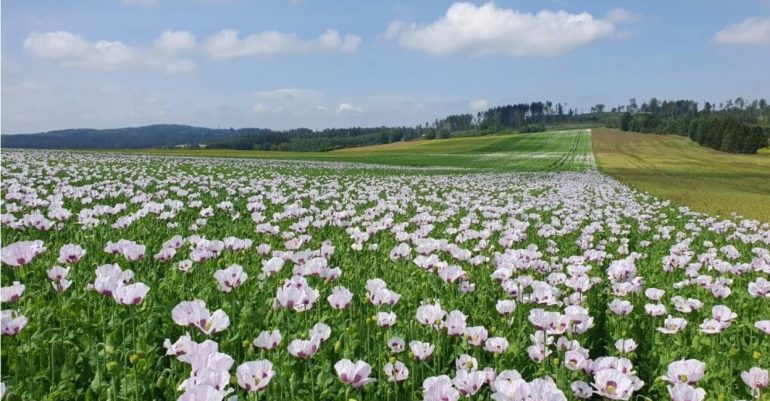A team of scientists from the Faculty of Agronomy at Mendel University (MENDELU), together with representatives from Plzeňský Prazdroj, the agricultural company JTZE AS, and the Czech University of Life Sciences, is working on a research project called ‘For Barley’, that aims to identify alternative methods of growing malting barley in the Czech Republic that can withstand the effects of climate change. This involves testing a method of growing barley using catch crops and limited soil cultivation, while monitoring the effect of these changes on the soil and the quantity and quality of the grain produced.
“For Plzeňský Prazdroj, malting barley is an essential raw material. The brewery prioritises the Czech origin of barley and domestic malt production, as this allows for better control of the production quality,” explained Jakub Zaoral, Plzeňský Prazdroj AS’s sustainability manager and coordinator of the research project.
Since 2023, the study has been carried out at three locations in the Czech Republic, covering a total area of over 200 hectares, focusing on comparing conventional and regenerative cultivation of field crops. The experimental areas near Jihlava and Hradec Králové are on land managed by JTZE AS, while the Czech University of Life Sciences is conducting experiments on its farm near Prague. These areas have been practising regenerative farming methods in full since 2024.
“The essential features of regenerative agriculture are limiting soil cultivation, leaving post-harvest residues on the soil surface, and including species-rich catch crops in crop rotation,” explained Jakub Elbl from JTZE. Catch crops prevent weeds from emerging, retain moisture in the soil, nourish it, and protect it. Currently, precipitation is very intense and sudden, and if there is no cover on the soil or it is minimal, the soil erodes and destroys the upper layer, which is quite a demanding process for the soil. Ideally, regenerative agriculture leads to the soil in the field being covered with vegetation all year round.
As part of the comparison between conventional and regenerative cultivation methods, the scientists are monitoring various soil, plant and yield parameters. Traditional methods are complemented by the latest ‘smart farming’ technologies. These include smart meteorological sensors that record weather conditions over time at selected trial sites, methods that enable full-area mapping of crops, and remote monitoring using Sentinel-2 and PlanetScope satellites to capture the development of crop stands at intervals of several days.
Unmanned drone imaging provides very precise data on the condition of plants, crop damage and weeding at multiple time points. Advanced technologies for guiding mechanisation with several-centimetre accuracy during individual land operations using GNSS-RTK are also employed, as well as the collection of records from harvesting equipment to provide valuable information on the achieved crop yields in individual parts of the land.
The differences in results between locations are reflected in the diversity of soil and climate conditions, farming methods and stand establishment. “In the first year of the full implementation of regenerative cultivation procedures, the yield and quality parameters of barley grain were balanced or lower by only a few percent in the regenerative variant at two locations. However, a significant drop was recorded at the third location due to voles damaging the stand, which can be a major problem in regenerative agriculture,” said Vojtěch Lukas, head of the research team at MENDELU’s Faculty of Agronomy.
The research project is scheduled for completion in 2027, as multi-year repetition is necessary to ensure meaningful results. In 2025, the research team at MENDELU, together with project partners, will continue the experimental work in order to gather sufficient data for the statistical evaluation of the newly proposed regenerative cultivation method, and to demonstrate its potential benefits in terms of soil quality, production, grain quality parameters and the economics of cultivation. Doctoral students from the Institute of Agrosystems and Bioclimatology will be involved in taking field measurements, processing spatial data and evaluating the results of the experiment. The results of the experimental work are also the subject of final theses currently being completed by students at the Faculty of Agriculture and Forestry of MENDELU.








